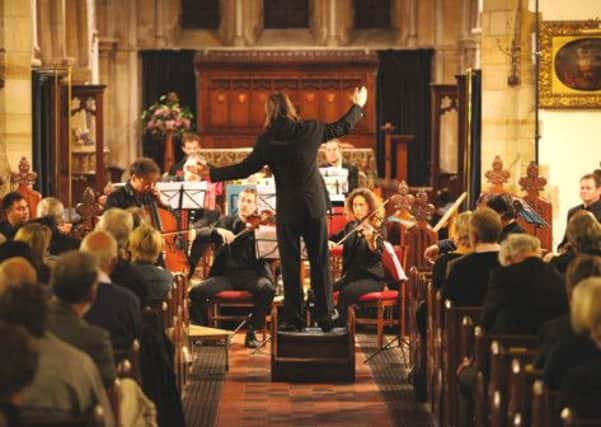A Sussex Legacy - beautifully handled with skill and sensitivity


Before the music started, Simon Baggs , who also conducted the orchestra, gave a riveting talk on Elgar’s association with Sussex, illustrated by themes of works played by pianist Marisa Thornton-Wood and Simon Baggs’ on the violin. Simon is presently writing a book on Elgar’s Enigma Variations. Elgar’s later works were composed while living at Fittleworth.
The introduction to the concert was given by Tim McDonald who overcame a small problem with PAS and enabled the packed audience to gather the back ground of the composers.
Advertisement
Hide AdAdvertisement
Hide AdThe opening piece was Elgar’s haunting Sospiri which expresses his longing, perfectly exemplified by the orchestra, for the pastoral scene which he found in Sussex.
The Cello Concerto, described by Simon Baggs as “the saddest piece of music ever written” when Elgar felt he had lost everything he cared for and the old order was changing following the war, was performed with moving sensitivity. Matthew Sharp talented soloist gave a masterly performance.
Vaughan Williams Reconciliation from Dona Nobis Pacem gave Matthew Sharp the opportunity to show his fine Baritone voice to parallel his talents as a gifted cellist, He was joined by soprano Jacobine van Laar .
Brighton born Frank Bridge reading of the sinking of the “Lusitania” was deeply affected by one victim a nine year old child, Catherine, and composed his Lament for String Orhcestra as a personal response to this.
Advertisement
Hide AdAdvertisement
Hide AdThe grief and plaintive yearning of this loss were conveyed by the orchestra as if sharing in this tragedy.
By contrast the following piece written by an increasingly deaf Vaughan Williams, Concerto Grosso for String Orchestra in his late seventies for a performance by the Rural Schools Music Association,( dividing it into three parts according to ability,) flowed flawlessly through the orchestra exuding youthful vitality as befits an orchestra with so many young players, as was the composer’s intention when he wrote it in 1950.
It was a great honour to have the composer of the next two pieces in the audience. Tony Biggin and his composition “Steyning” a special Festival commission having its premier, sung by Matthew Sharp is based on a poem written in 1916 . It has a slight resonance with “Adlesthorp” but the real name of the author was not discovered until 1969 being Canon John Stanley Purvis of York who had used the nom de plume Philip Johnson for over fifty years. The words, so clearly articulated by Matthew Sharp, contrast the quiet scenes of Steyning with the”rat infested ditches of the Front line”.
His second piece, If Only (from Requiem) brought back Jacobine van Laar whose pleasant light soprano voice suited well the movement played,in which the harp enhanced much delight to voice and orchestra.
Advertisement
Hide AdAdvertisement
Hide AdGeorge Butterworth’s beautiful composition “On The Banks of Green Willow” is evocative of the tranquil English countryside and is well loved by many. The contrast between this serene music and the reality of the First world War in which Butterworth lost his life aged 31 are a stark reminder that this year commemorates the centenary of the out break of that fearful conflict which took among thousands of others, the life of young Butterworth and deprived the future of his musical gifts.
By chance a young Adrian Bolt conducted the first performance in 1913. The performance of the orchestra in this most pastoral of compositions, far exceeded anything one could hope for and held listeners spell bound. Perfection is a word which should be used wisely but as with all the other pieces, under the conductor Simon Baggs this fine orchestra more than excelled and displayed tone, time and sensitivity of an order which towers over the music scene.